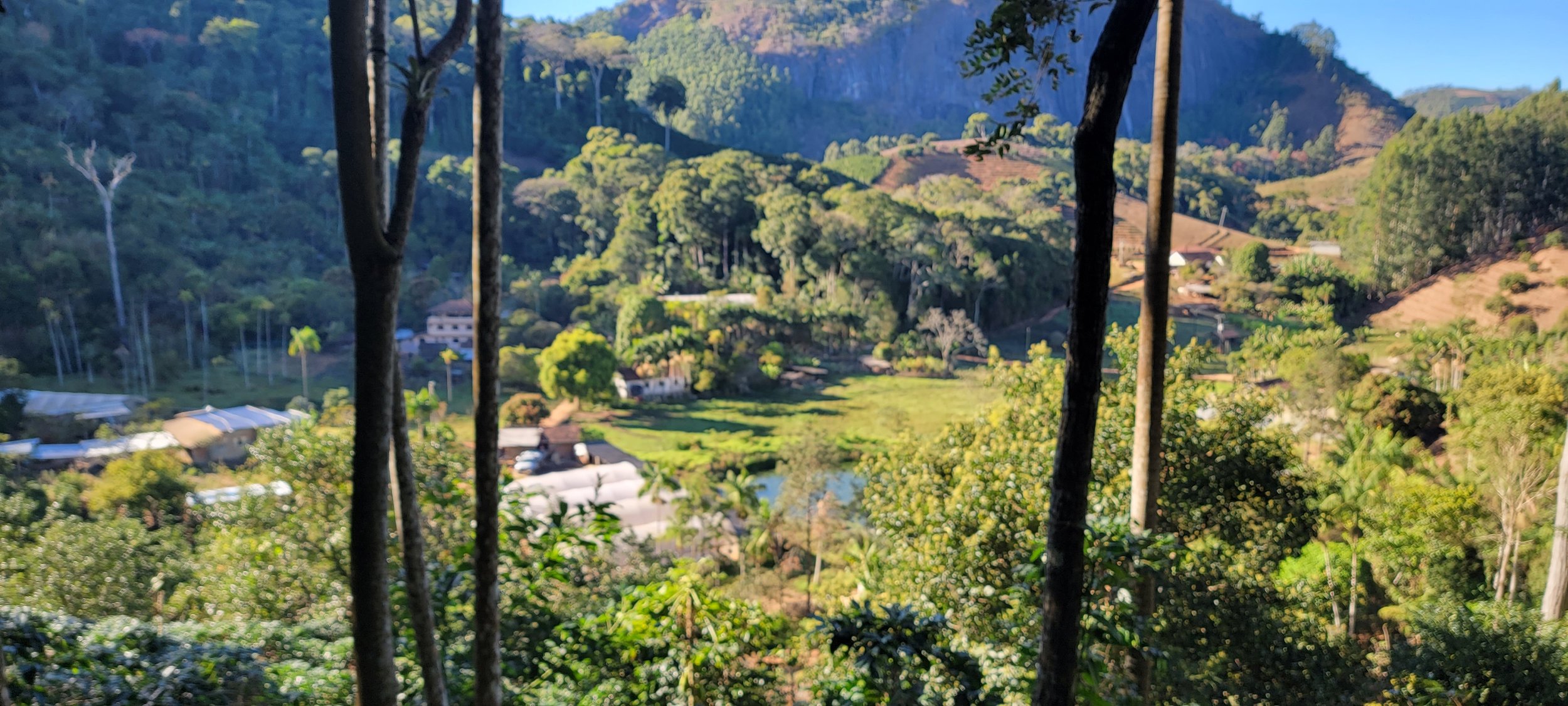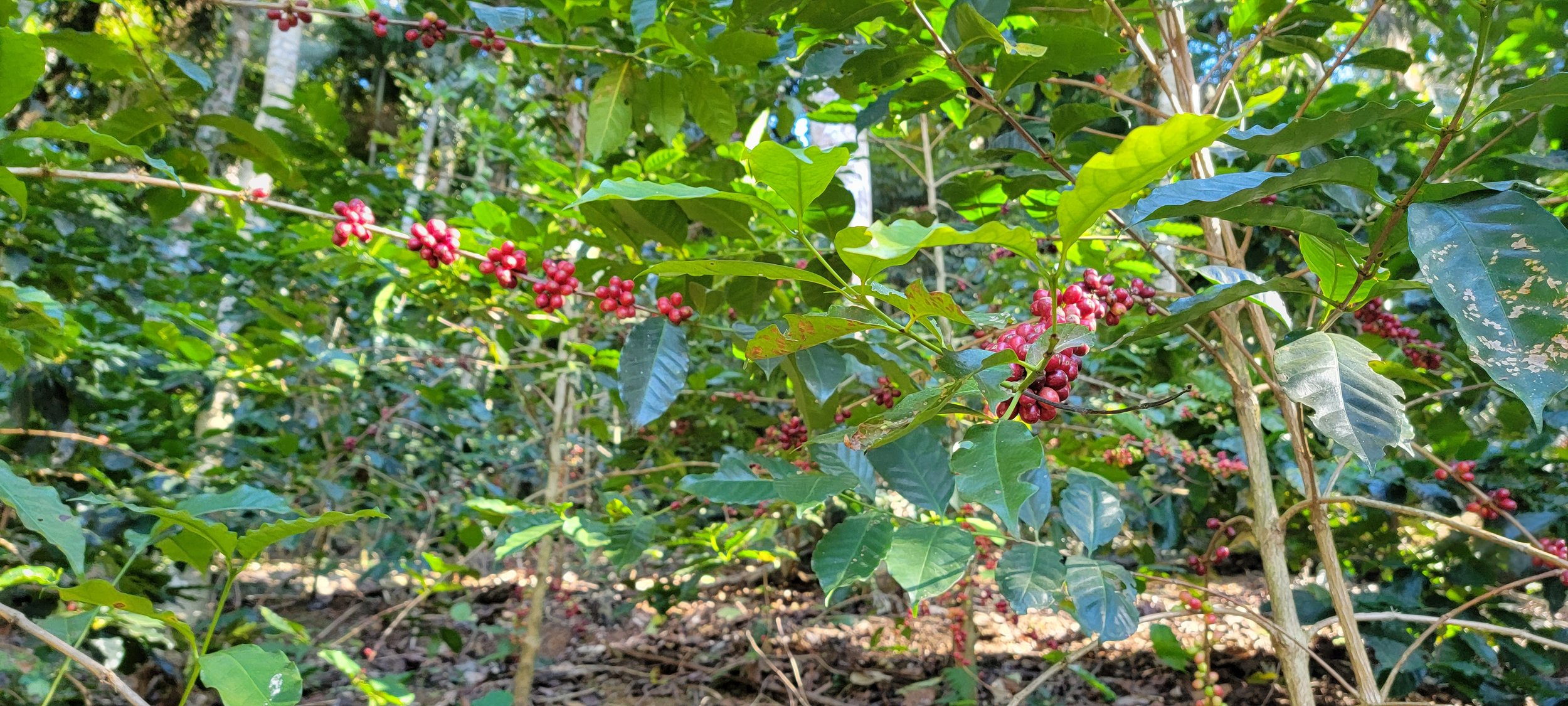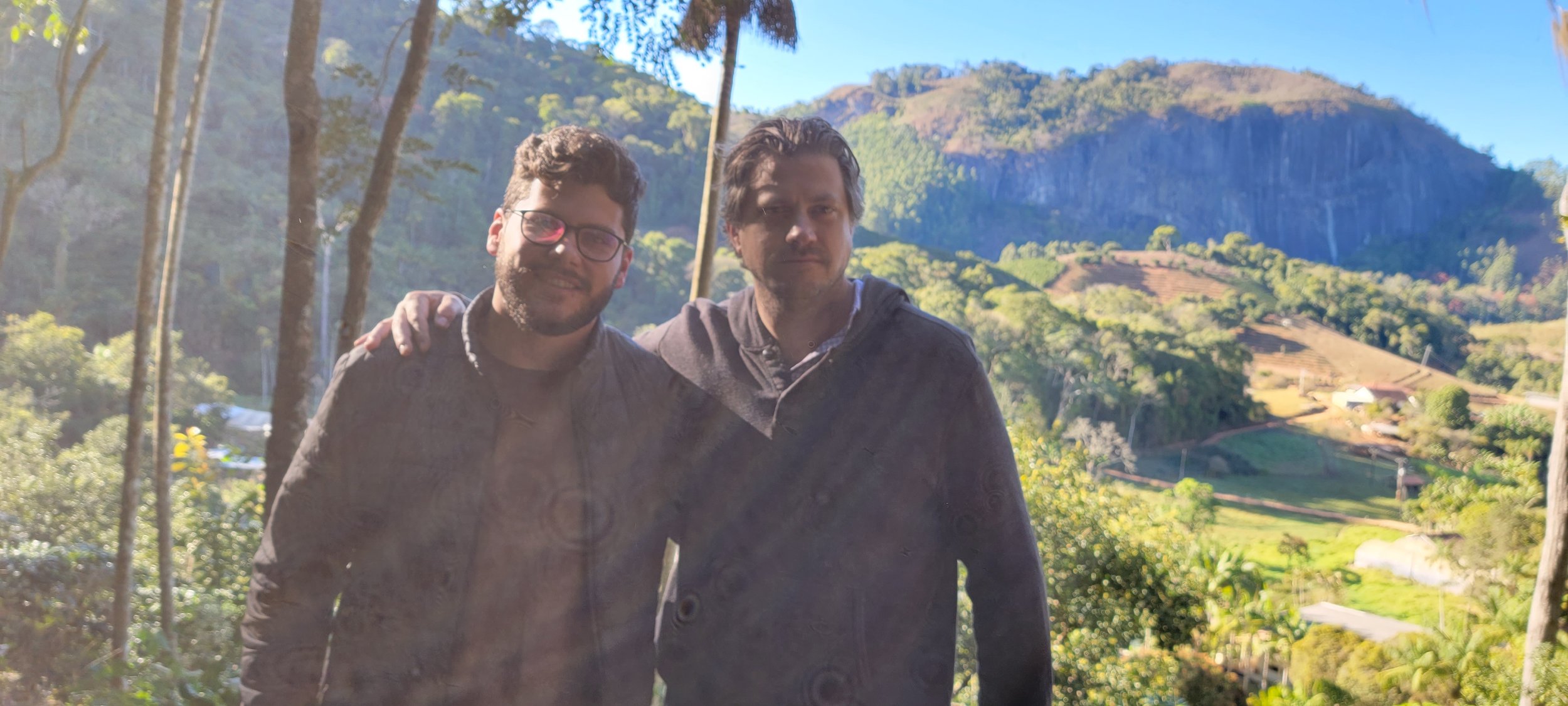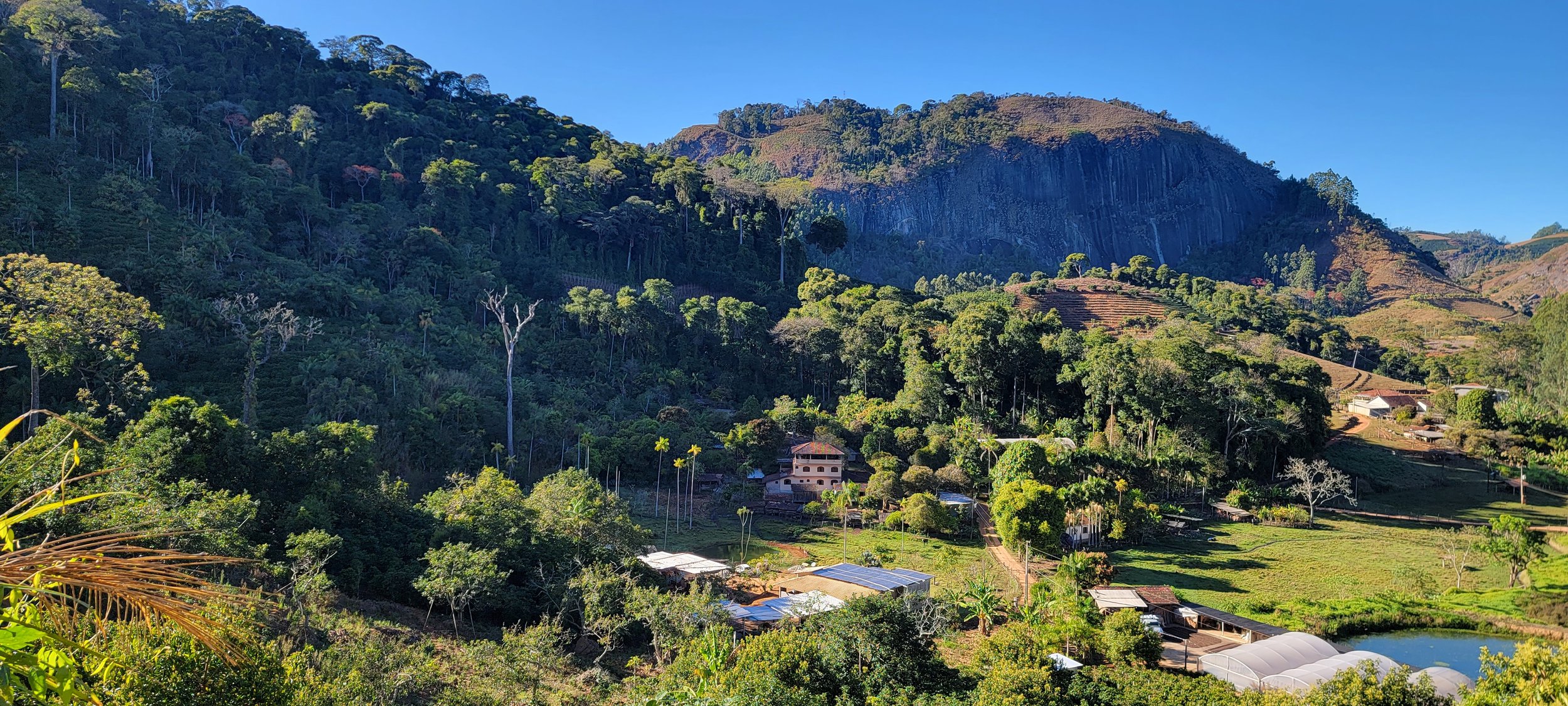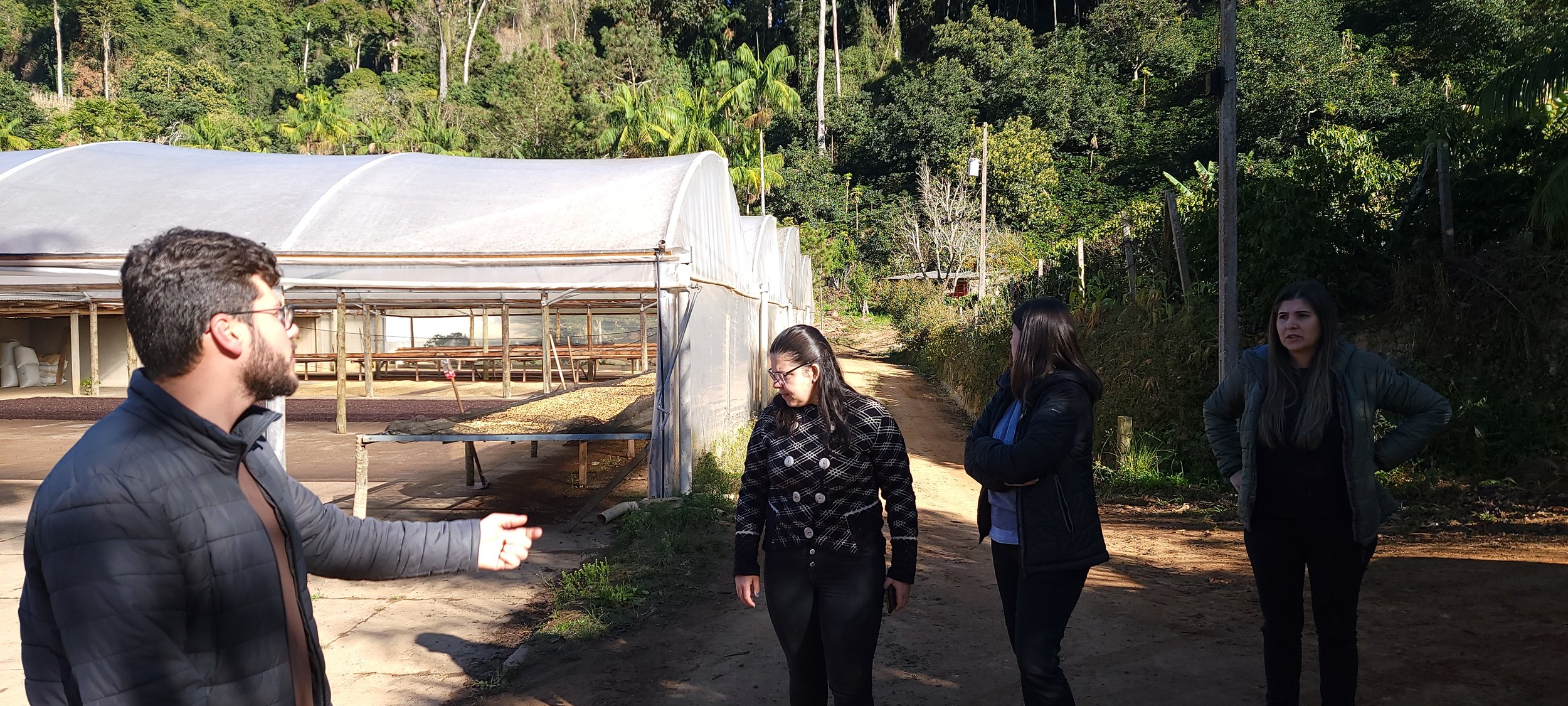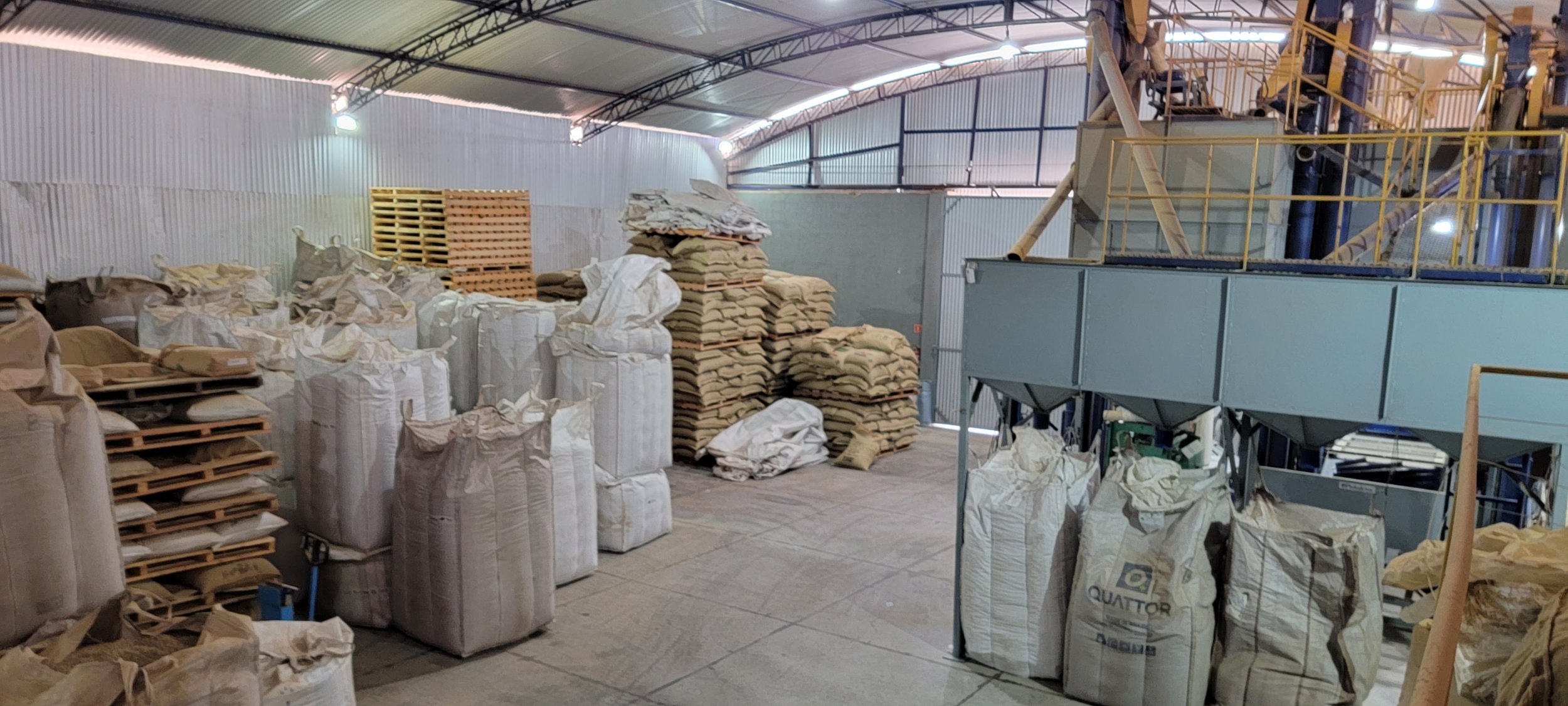Explore Brazil: July 2023
This month we feature our most popular blend, Bossa Blend as a tribute to bossa nova pioneer Astrud Gilberto, who sadly passed away last month. We return to the Espírito Santo, to the Montanhas do Espírito Santo region and one of Brazil’s top coffee farms, Sítio dos Cedros.
BRAZILIAN BLEND: BOSSA BLEND
This month we feature our Bossa Blend, named for the beautiful, melodic, calming, yet complex Brazilian music bossa nova. Last month we lost one of bossa nova’s great pioneers, Astrud Gilberto. Her subtle, soothing, and sexy voice helped to define bossa nova, beginning with her singing on The Girl from Ipanema on the legendary 1964 album Getz-Gilberto. Like Astrud, our Bossa Blend is designed to bring a sweet, calming but lifting cadence to your day. And be sure to check out our tribute playlist to Astrud this month as you sip on your Bossa Blend.
REGIONAL BLEND: Montanhas do Espírito Santo
The beautiful Pedra Azul, a granite formation in the Montanhas do Espírito Santo coffee region.
Espírito Santo has long produced both Arabica and Robusta coffee, called conilon because the line of Robusta introduced into Brazil in 1912 is from the Kouilou River basin, and somewhere in the telephone chain ‘Kouilou’ became ‘Conilon’. The state’s fame has largely been that of a mass producer of low-quality conilon, and conilon still comprises 80% of the state’s production. However, growers in the southern Capixaba Mountains have quietly been producing incredible Arabica coffees for many generations–coffees with intense sweetness and notes of stone fruits and jasmine. Given Brazil’s vastness and the state’s focus on Conilon, these coffees rarely made their way into the traditional “specialty coffee’ routes. That has changed considerably in the last few years, and several growers in the region started exporting their coffees, including this month’s featured partner Dério Brioschi.
MICROLOT: Dério Brioschi, Sítio dos cedros
Dério Brioschi tending to his drying coffee lots.
Though not yet 30, Dério Brioschi has developed an impressive resume. He completed his academic studies under the tutelage of Lucas Louzada, a well-known coffee researcher who runs a spectacular coffee lab at the Instituto Federal do Espírito Santo and has published some very interesting studies about coffee, including the impact of microorganisms on coffee quality. As part of Dério’s studies, he researched coffee post-harvest processing methods, publishing an article in Food Chemistry on the use of the wine-making technique of carbonic maceration in coffee processing. He also interned at Coffee Lab International under Mané Alves, one of the driving forces behind the Q Grader program that has brought a common language to the coffee industry.
Coffee plants blooming at Sítio dos Cedros.
His dedication has allowed him to take advantage of the incredible terroir at Sítio dos Cedros, making it one of Brazil’s top coffee farms. The farm is quite small–only 12 hectares. Nonetheless, in good years, his coffees are among the very best in Brazil. There is something unique and wonderful about great coffees from Sítio dos Cedros. While their flavor profile largely fits into the flavor profile of the region–very sweet, notes of stone fruit, they also present a complexity that makes them stand out. Dério has won several competitions and would likely win more; however, given the cooler temperatures of the region, he is often still harvesting his best coffees when most of the competitions are occurring.






